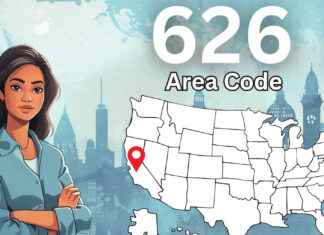The acknowledgment of failure is without appeal. While the rebels of the March 23 Movement (M23) had pledged to end hostilities on March 7, the fighting did not stop. They have even intensified in the province of North Kivu. On Saturday March 11, one of the Congolese army spokespersons, Lieutenant-Colonel Guillaume Njiké Kaiko, accused the M23 of having “mortared the town of Saké”, a city located about 30 kilometers from Goma, one of the largest cities in eastern Democratic Republic of Congo (DRC).
“Our organization has honored its commitment”, defended himself, the same day in a press release, one of the leaders of the M23, Lawrence Kanyuka, accusing in turn the Armed Forces of the DRC (FARDC) of having attacked their positions and thus violated the ceasefire. On Tuesday 7 and Wednesday 8 March, the insurgents nevertheless conquered at least two new villages according to the Kivu Security Barometer (which maps armed conflicts in the region). Karuba and Ruchika, in the territory of Masisi, thus add to the long list of localities already under occupation by the M23.
To block the expansion of the rebels, several mediations were launched, notably by Kenya and Angola. At least three ceasefires have already been declared since the resurgence of the armed group at the end of 2021, ten years after its defeat by the Congolese army in 2013. But none of them has been respected. The latest, however, was negotiated directly between Joao Lourenço, the Angolan head of state who is a mediator mandated by the African Union (AU), and the M23. A first.
The number of soldiers continues to multiply
But this umpteenth diplomatic attempt does not convince Kinshasa. “I ask to see,” Félix Tshisekedi said on Saturday March 4, four days before the ceasefire officially came into effect. The Congolese president said “accept[r] to give peace a chance”. He considers, however, that a dialogue with the rebels, described as “terrorists”, is a red line which he refuses to cross despite international pressure.
“At any time, you have to negotiate. At all times, diplomacy must prevail,” insisted Sunday, March 12, Michel Xavier Biang, Gabon’s representative to the United Nations, during a visit by the UN Security Council to Goma, the regional capital. “The response must be above all political,” added his French counterpart, Nicolas de Rivière.
Yet the stalemate continues, as the number of armed men on the ground, including foreign contingents, continues to grow. Luanda has thus just announced the forthcoming dispatch of a unit whose “main objective [will be] to secure the areas where M23 members are stationed” in the east of the country “and to protect” the team responsible for monitoring compliance with the ceasefire, said the Angolan presidency.
These soldiers will be added to the hundreds of Kenyans deployed by the East African Community (EAC) in Kibumba and Rumangabo, two localities from which the M23 agreed to withdraw, and to the hundred Burundians sent at the beginning of March in Saké, where FARDC and rebels have been clashing for several weeks. Ugandans and South Sudanese are also expected to reinforce the ranks of the EAC force, although for these two countries no timetable has yet been formalized. Not to mention the thousands of blue helmets from the United Nations mission in the DRC (Monusco) responsible for protecting civilian populations.
“Rwandan army incursions into North Kivu”
The mandate of the East African contingents is “offensive”, assured Christophe Lutundula, the Congolese foreign minister, at the time of the first deployments. None of them however opened fire against the M23, supported, according to Kinshasa and the UN, by Rwanda, also a member of the East African Community.
“There is no longer any need to demonstrate that there are incursions by the Rwandan army into North Kivu,” Ambassador Nicolas de Rivière said on Sunday. “This security and humanitarian crisis must end,” concluded Nicolas de Rivière. A few days earlier, while visiting Kinshasa, Emmanuel Macron had avoided clearly indexing Kigali.
The first delivery of humanitarian aid, consisting of medical equipment and emergency shelters, arrived in Goma on Friday thanks to the airlift set up by France and the European Union (EU). In February alone, nearly 300,000 people fled their villages in North Kivu, according to the United Nations High Commissioner for Refugees (UNHCR).






